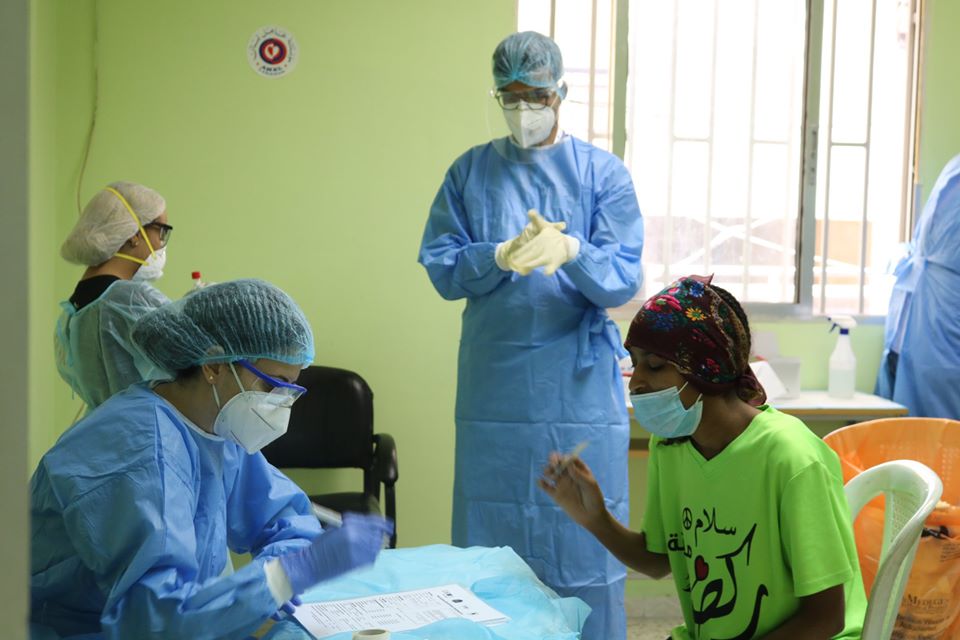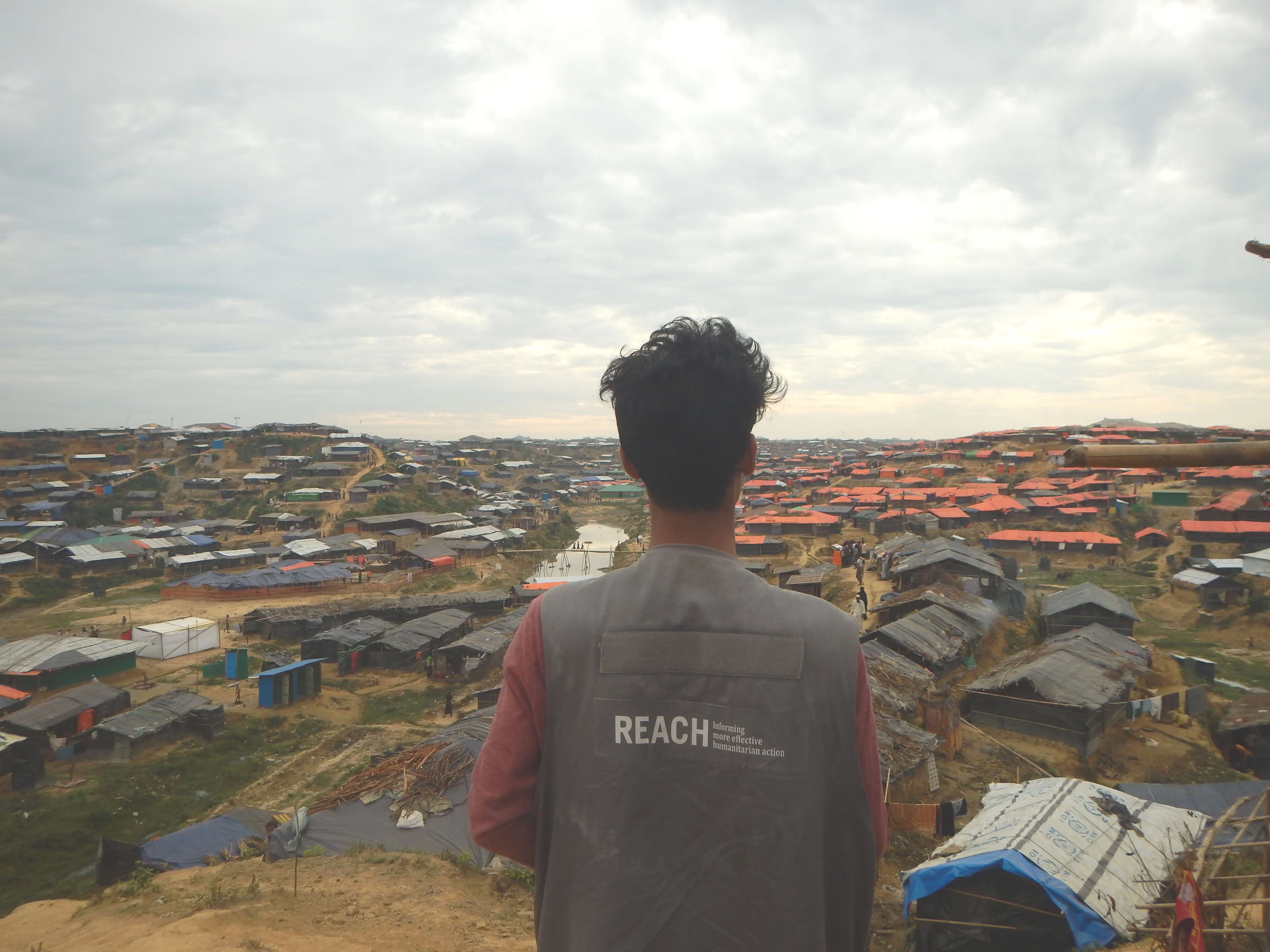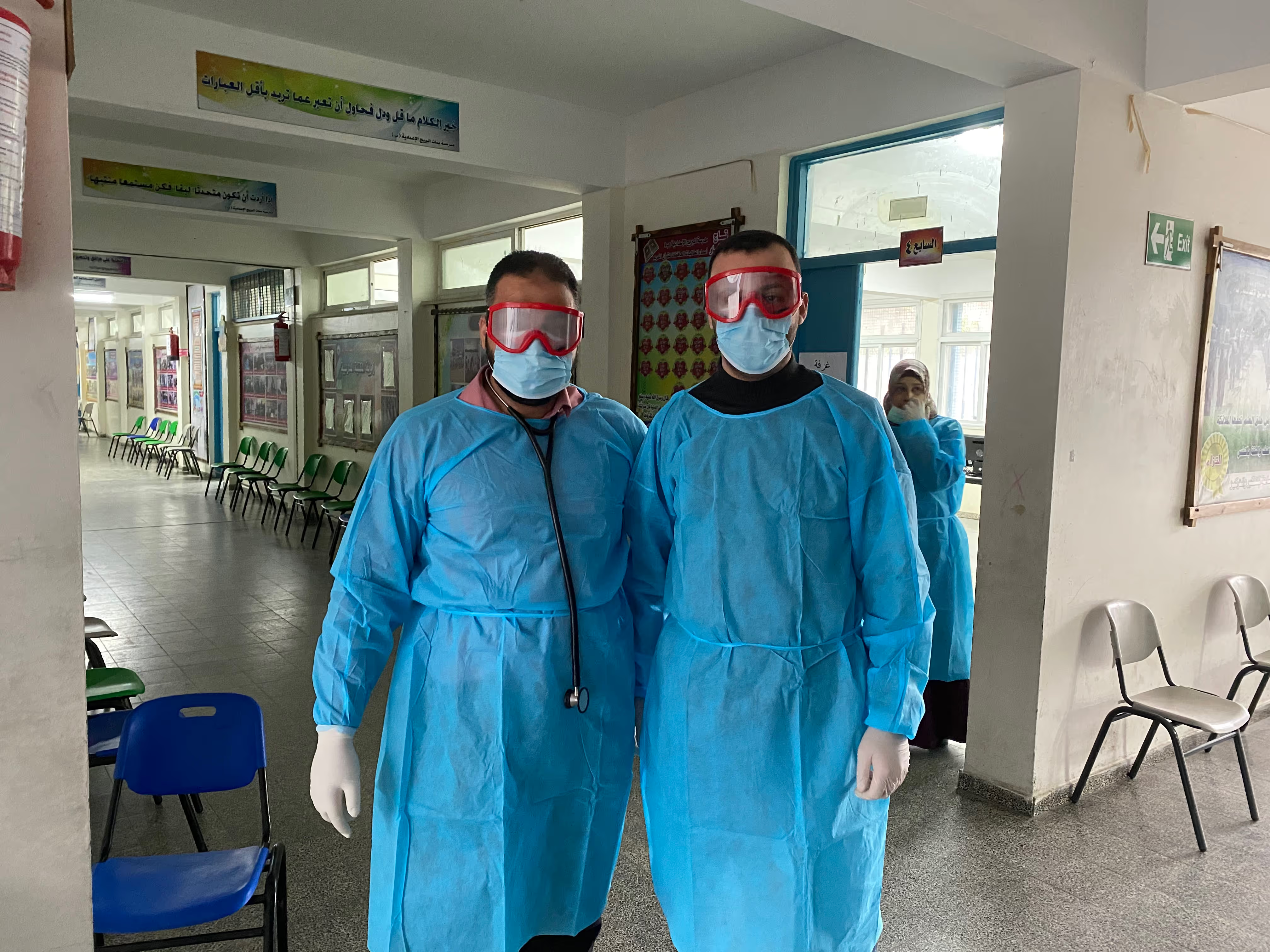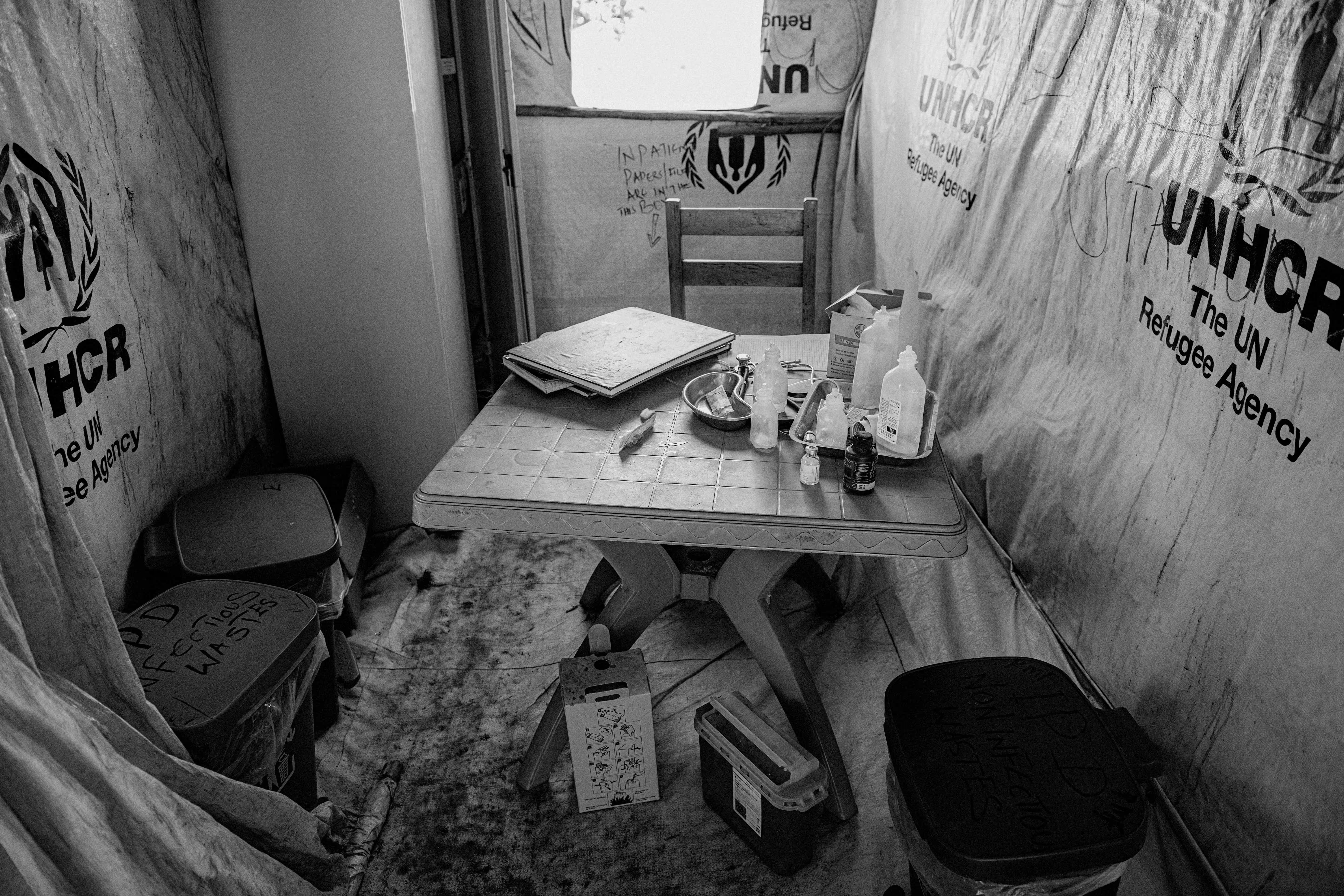Funding rapid research in a pandemic — what did the research tell us? PART TWO

At the start of the pandemic, Elrha released a rapid response funding call, and funded 15 studies to contribute to COVID-19 humanitarian response. These studies covered topics including behaviour change, communications and messaging, as well as gender-based violence (GBV) — all linked to COVID-19.
This blog is the second of a two-part series, where we share six of the studies that focus on a range of themes in the context of the pandemic: innovative solutions, humanitarian systems, coordination, and evidence sharing, health systems and healthcare delivery, and predicting outbreaks.
1. Using Humanitarian Engineering to Solve Social Distancing Barriers in Refugee Humanitarian Interventions: A Cross-Country Comparison of Turkey, Lebanon and Jordan
Partners: Amel Association, NISCVT, Safa for Development, Jordanian Pioneering Center, Altkaful Charity Association
This study used qualitative and quantitative methods to explore how humanitarian non-governmental organisations (NGOs) in three countries tackle the challenge of limiting infection spread of COVID-19 among refugee populations. Cross-country comparisons were used to examine how NGOs are addressing infection risks, with a view to informing best practice guidance for humanitarian interventions.
The overall goal of the study was to determine what interventions could be implemented that would mitigate barriers to practices that aimed to slow the spread of COVID-19 among refugee populations.
One of the most concerning findings of this study was the prevalence of COVID-19 skepticism among refugees.
Humanitarian service providers will need to consider how COVID-19 skepticism might affect not just their refugee clients’ adherence to safety protocols, but also their willingness to be vaccinated in the future.
Read more: Using Humanitarian Engineering in Humanitarian Refugee Interventions
2. Monitoring and maintenance of handwashing devices during the COVID-19 crisis in a humanitarian context — the role of psychological ownership
Partners: International Federation of Red Cross and Red Crescent Societies (IFRC), Ranas Ltd., Eawag Swiss Federal Institute of Aquatic Science and Technology
The main goal of this research project is to investigate individual and collective psychological ownership on monitoring and maintenance of public and private handwashing devices using a controlled trial, under the current COVID-19 crisis in the context of the Rohingya refugee camp Bangladesh.
Together with Eawag’s local partner, International Federation of Red Cross and Red Crescent Societies (IFRC), interventions will be developed to strengthen psychological ownership of handwashing infrastructure, as well as tailored checklists and guidelines for monitoring and maintenance of private and public handwashing devices.
A team member from Ranas Ltd., Dr. Miriam Harter, reinforces the importance of handwashing infrastructure in humanitarian contexts:
“Provision of handwashing infrastructure is key to ensure regular handwashing in a humanitarian setting. However, the functionality of such infrastructure is not always given.”
Explore this study: Psychological ownership and handwashing-device functionality during the COVID-19 crisis
3. Evaluating the impact of COVID-19 on multi-sectoral humanitarian needs
Partners: The University of Manchester, Johns Hopkins Bloomberg School of Public Health, IMPACT Initiatives (IMPACT) on behalf of the REACH Initiative
A study by REACH initiative explored the impact of COVID-19 on the severity and magnitude of humanitarian need across three humanitarian responses.
It focused on target population groups and geographical sub-areas where the COVID-19 pandemic had most impacted the direct and indirect health needs of people affected by crisis.
The study had some interesting findings; both displaced and non-displaced populations were at risk of exclusion from healthcare services and face barriers to access. Washing hands regularly, was the commonly adopted preventive measure across countries. Higher income households were more likely to adopt preventive measures.
The principal investigator Roxana Mullafiroze explains how “The lack of comprehensive and reliable data is a common problem in humanitarian contexts”.
Find out more about their findings: Evaluating the impact of COVID-19 on multi-sectoral humanitarian needs

4. Gender-based violence (GBV) risk mitigation among non-protection humanitarian sectors in the context of COVID-19
Partners: UNICEF, CARE, Brigham and Women’s Hospital, Beth Israel Deaconess Medical Center
Evidence shows that during humanitarian crises, Gender-Based Violence (GBV) including intimate partner violence (IPV) rapidly increases.
Government implementations such as quarantining may intensify the risk of IPV, leaving women with no option but to stay in the same environment with the perpetrator of violence which also leads to reducing survivors’ access to GBV, health, and psychosocial services.
The main outcome of the study is to integrate GBV risk mitigation into COVID-19 humanitarian response activities. Therefore, identifying gaps and barriers to adoption and implementation within the current guidance will allow an advanced understanding for research practitioners involved in this field.
As Jennifer Scott, Principal Investigator at Beth Israel Deaconess Medical Center explains the importance of exploring the current gaps in order to support better outcomes for GBV victims:
“Guidance on GBV risk mitigation is critical for protecting women and girls during the COVID-19 pandemic; however, it is only effective if we understand what factors influence its implementation.”
Read more about this project: GBV risk mitigation in humanitarian crises during COVID-19
5. Health system and community responses to COVID-19: a comparative study focused on Palestinian refugees in Gaza and Lebanon
Partners: United Nations Relief and Works Agency (UNRWA) for Palestine Refugees in the Near East, Queen Margaret University, Edinburgh
With a focus on Gaza and Lebanon, this study involves a specific health system, the United Nations Relief and Works Agency (UNRWA) for Palestine refugees, with an aim to find out if and how UNRWA is resilient in the face of COVID-19 and what factors were at the core of this resilience.
The study suggests that health systems which maintain effective service delivery in the face of shocks or crises- may be those with the capacity to innovate and learn from previous mistakes.
Evidence proves that an open culture of learning, sensitivity and commitment towards beneficiaries, and autonomous decision making are critical factors that must be prioritised when trying to meet population needs.
Emergency preparedness and planning is a core resilience capacity of UNRWA which has been honed across multiple security related shocks. While COVID-19 was a new type of shock, the agency used similar strategies for preparedness, including collaboration and communication via emergency coordination bodies and shared decision-making with field offices.
Explore the research project: Health system and community responses to COVID-19 among Palestine refugees in Gaza and Lebanon

6. Dial-COVID: remote mitigation through telephone symptom surveillance in refugee settlements in Uganda
Partners: University of Washington, Infectious Diseases Institute, Makerere University; Harvard Humanitarian Initiative; Medical Teams International; Viamo
The study is assessing the uptake of a mobile telephone surveillance and mitigation tool (“Dial-COVID”) in refugee settlements in Uganda. This innovative tool will help provide data to health-implementing partners and to the Ugandan Ministry of Health regarding clusters of people with symptoms consistent with COVID-19 disease.
Dial-COVID is accessed by both refugees and Ugandan nationals (internally displaced and not) living within refugee settlements and outside refugee settlements.
Preliminary analysis of five qualitative interviews suggests participants have had a positive attitude towards COVID-19 vaccination and would be willing to be vaccinated if a vaccine was freely available to them.
As Kelli O’Laughlin, MD, MPH, University of Washington, states:
“We anticipate that the Dial-COVID interactive voice response platform will serve as an effective symptom tracker and information dissemination tool. Dial-COVID could help with characterising the burden of COVID-19 among refugee populations in Uganda and may assist with mitigation of disease through timely and focused public health messaging.”
Read more about this innovative project: Dial-COVID: telephone symptom surveillance among refugees in Uganda

Stay updated
Sign up for our newsletter to receive regular updates on resources, news, and insights like this. Don’t miss out on important information that can help you stay informed and engaged.
Explore Elrha
Learn more about our mission, the organisations we support, and the resources we provide to drive research and innovation in humanitarian response.